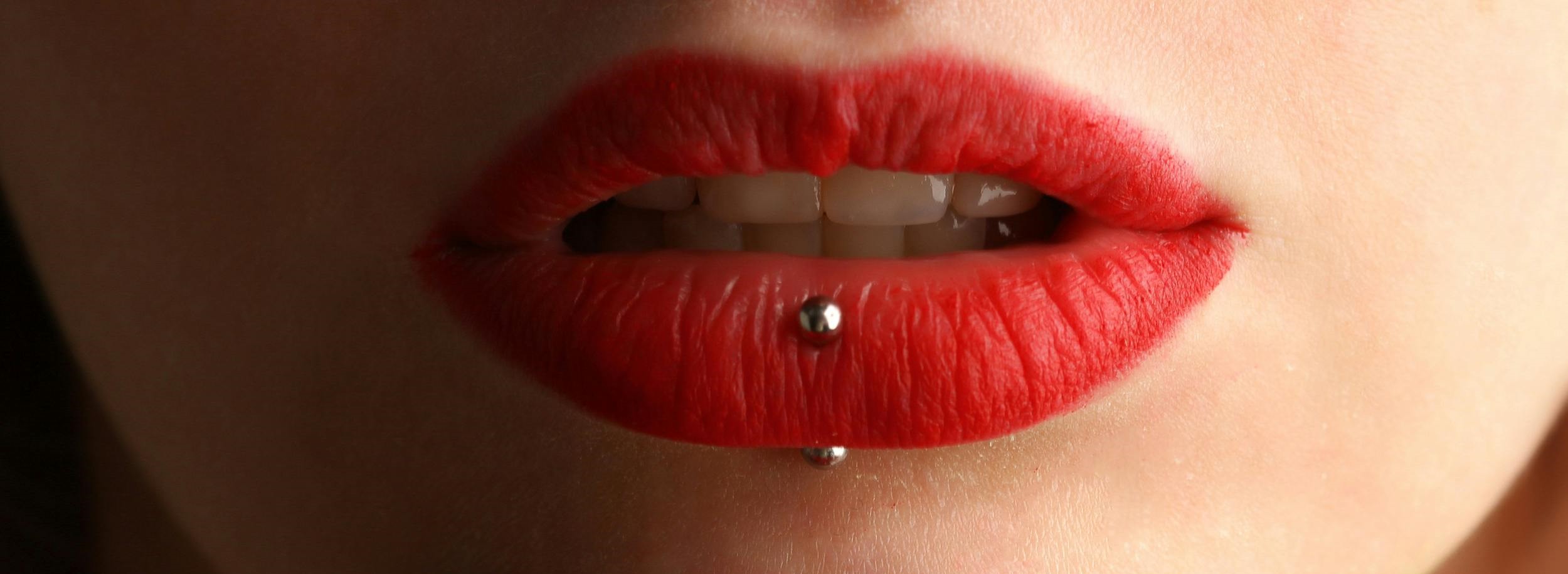
24 Sep The Dangers of Oral Piercings
Oral piercings have gained popularity as a form of self-expression, especially among younger individuals. While they may look cool or edgy, there’s a lot more to them than meets the eye. Beneath the surface, oral piercings can introduce serious health risks to both your mouth and body. Before investigating lip rings, tongue studs, or cheek piercings, it’s essential to consider the dangers they pose. Here are four key reasons to rethink oral piercings and how they can negatively affect your health.
Infections and Serious Diseases
One of the biggest concerns with oral piercings is infection, which is no surprise given the bacterial environment in your mouth. Millions of bacteria naturally live in your mouth, and while most are harmless, oral piercings open the door for harmful bacteria to cause serious issues. The process of getting pierced itself creates an open wound in a space filled with bacteria, which can easily infect the area. Redness, swelling, and pain are common indicators of infection, but things can escalate quickly without proper care.
Once an infection starts, it can become more severe. Infections linked to oral piercings can spread to other parts of the body, potentially causing life-threatening conditions like sepsis. Furthermore, oral piercings can also lead to the transmission of blood-borne diseases such as hepatitis B, C, D, and G. According to the Oral Health Foundation, this happens because the wound from the piercing allows bacteria and viruses to enter your bloodstream, potentially infecting organs far beyond your mouth.
If these bacteria reach your heart, there’s a risk of developing endocarditis, an infection of the heart’s inner lining or valves. This condition is particularly dangerous for people with pre-existing heart conditions, and it often requires hospitalization and intensive treatment.
But the dangers don’t stop at infections alone. There’s also a higher risk of prolonged bleeding if a blood vessel is accidentally punctured during the piercing procedure. Uncontrolled bleeding can be dangerous and require medical intervention, especially if it happens at home after the piercing appointment.
Chipped Teeth, Gum Recession, and Other Dental Issues
Beyond infections, oral piercings are notorious for causing long-term damage to your teeth and gums. The metal jewelry used in these piercings can wear down the enamel on your teeth, making them more susceptible to chips and cracks. People with tongue or lip piercings often chip their teeth without even realizing it, particularly when they are eating, talking, or even while sleeping. This constant friction of metal against teeth is a major cause of dental wear and tear.
Once teeth are damaged, the repairs can be costly and extensive. Cracked teeth might require fillings, crowns, or even root canals if the crack reaches the inner layers of the tooth. In severe cases, a broken tooth may need to be extracted and replaced with a dental implant, which can be a long and expensive process.
But it’s not just your teeth that are at risk. Oral piercings can also cause significant gum damage. The metal jewelry used in oral piercings can rub against your gum tissue, causing it to recede. Gum recession is a serious issue, as it exposes the roots of your teeth, making them more vulnerable to decay and sensitivity. Worse still, receding gums don’t regenerate, meaning the damage is permanent unless treated with surgical procedures like gum grafts.
Over time, poor dental health caused by oral piercings can lead to periodontal disease. This is a severe form of gum disease that can result in tooth loss if left untreated. Periodontal disease also has links to other health problems, such as heart disease and diabetes, showing just how interconnected your oral health is with your overall well-being.
Breathing Problems Due to Swelling
One of the immediate dangers after getting an oral piercing is swelling. It’s normal for the pierced area to swell, but in some cases, this can get out of control. Severe swelling, especially in tongue piercings, can block your airway and make breathing difficult. This is an emergency situation that requires immediate medical attention, as it could lead to suffocation if left untreated.
Even minor swelling can cause discomfort and affect your daily life. You may have trouble speaking, chewing, and swallowing while the area heals. For some, the discomfort is only temporary, but others might experience ongoing problems as their body continually reacts to the foreign object in their mouth.
It’s also worth noting that the metal used in piercings can irritate the soft tissues of the mouth, leading to chronic inflammation. This constant irritation not only affects the immediate area but can cause further complications like ulcers or tissue overgrowth around the piercing site.
The risk of airway blockage is particularly high in people who suffer from allergies or other respiratory conditions. In these individuals, even a mild infection or swelling could have a greater impact on their ability to breathe comfortably.
Choking Hazards and Long-Term Speech Issues
A less obvious but equally dangerous risk of oral piercings is the potential for choking. Many types of oral jewelry, such as tongue studs or lip rings, can loosen over time. If a piece of jewelry falls out or breaks, there’s a real risk that you could swallow or inhale it. This can lead to choking, or in more severe cases, the metal piece could become lodged in your lungs, requiring surgery to remove it.
In addition to choking hazards, oral piercings can also affect your ability to speak clearly. Since piercings take up space in your mouth, they interfere with normal functions like speech, chewing, and swallowing. Many people experience a lisp or difficulty pronouncing certain words after getting a tongue piercing. While some of these issues resolve as you get used to the piercing, others may persist, particularly if the jewelry is large or constantly moves around.
The increased saliva production caused by oral piercings can also contribute to speech issues. Excessive saliva not only makes it harder to speak, but it can also lead to drooling, which can be both uncomfortable and embarrassing.
Conclusion
Oral piercings might seem like a harmless way to express yourself, but the risks associated with them are far-reaching and often underestimated. From infections and dental damage to choking hazards and speech difficulties, the consequences can be severe. Before deciding to get an oral piercing, it’s essential to weigh the risks carefully. If you already have an oral piercing, make sure to take extra precautions to keep the area clean and monitor for any signs of complications. Ultimately, your health should always come first, and protecting your smile is one of the best investments you can make.
Washington Family Dental is your home for the best advice on dental care. Regardless of your situation, we offer dental care geared to your needs. Schedule an appointment with us today!

About Our Team
Our team at Washington Family Dental has over 30 years of experience in the field of dentistry and a reputation for excellent patient care.
Read more about our team here. Ready to book your appointment? Contact us here.
